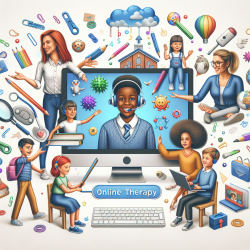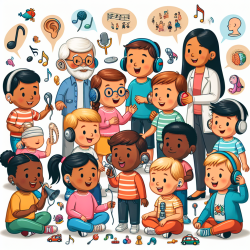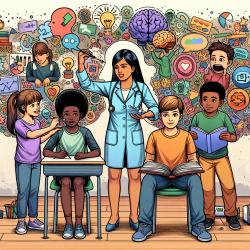The Future of Speech Therapy in Schools: A Technological Revolution
In an era where technology seamlessly integrates into our daily lives, it's no surprise that its influence extends into the realm of education and therapy. At the forefront of this transformation is the application of online speech therapy in schools, a pioneering approach that is reshaping the landscape of educational support services. For government health regulators, understanding the data-driven benefits of this technology is crucial to fostering policies that inspire and actualize the potential of every child.
Why Online Speech Therapy?
Online speech therapy, also known as teletherapy, leverages digital platforms to provide speech and language services to students in a school setting. This method addresses several key challenges faced by traditional in-person therapy, such as:
- Accessibility: By removing geographical barriers, online therapy ensures that students in remote or underserved areas have access to qualified speech-language pathologists (SLPs).
- Efficiency: With flexible scheduling and reduced travel time, therapists can focus more on delivering quality sessions, thus increasing the overall efficiency of the therapy process.
- Customization: Digital platforms allow for the creation of tailored therapy plans that can be adjusted in real-time based on the child's progress, ensuring personalized and effective interventions.
Data-Driven Insights: The Key to Successful Outcomes
One of the most compelling advantages of online speech therapy is its capacity for data collection and analysis. Through digital platforms, therapists can meticulously track a child's progress, analyze performance metrics, and make evidence-based decisions to optimize therapy outcomes. This data-driven approach provides several benefits:
- Objective Measurement: Quantitative data allows for objective measurement of progress, helping to identify patterns and adjust therapy techniques as needed.
- Transparent Reporting: Detailed reports can be shared with educators and parents, ensuring that all stakeholders are informed and engaged in the child's development.
- Policy Development: For government health regulators, access to aggregated data offers valuable insights into the effectiveness of therapy programs, aiding in the development of informed policies and resource allocation.
Inspiring Change: The Role of Government Health Regulators
As government health regulators, your role in supporting the integration of online speech therapy in schools is pivotal. By advocating for policies that embrace technology, you can help create an environment where every child has the opportunity to reach their full potential. Consider the following actions:
- Support Funding Initiatives: Advocate for funding that supports the implementation and expansion of online therapy programs in schools.
- Promote Training and Development: Encourage training programs for educators and therapists to effectively utilize technology in therapy.
- Facilitate Collaboration: Foster partnerships between educational institutions, therapy providers, and technology developers to ensure the seamless integration of services.
Conclusion
The integration of online speech therapy in schools is more than just a technological advancement; it is a step towards creating a more inclusive and equitable educational environment. By leveraging data-driven insights and fostering supportive policies, government health regulators can play a crucial role in actualizing the potential of every child. Together, we can inspire change and unlock the hidden potential within our educational systems.










